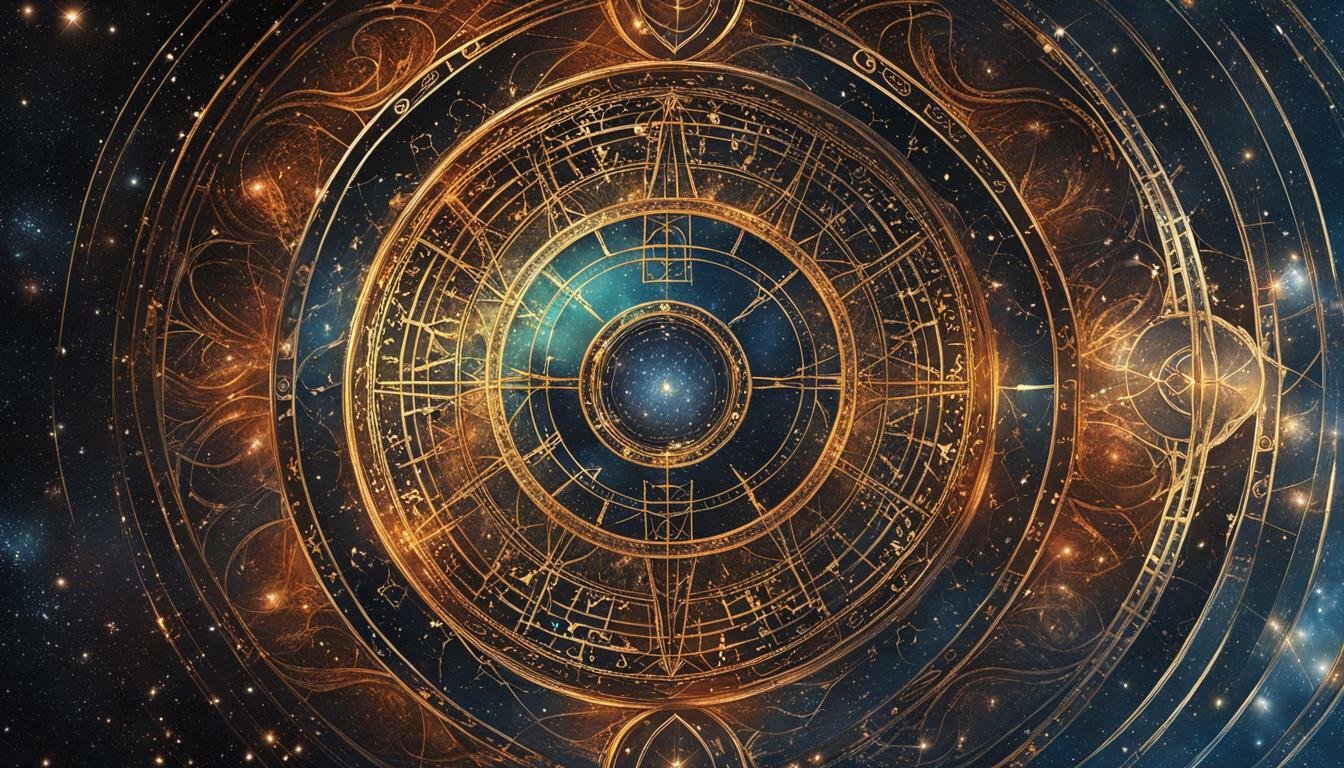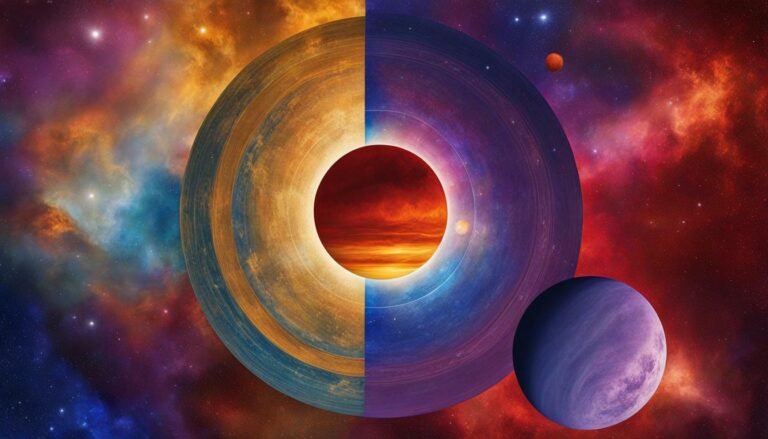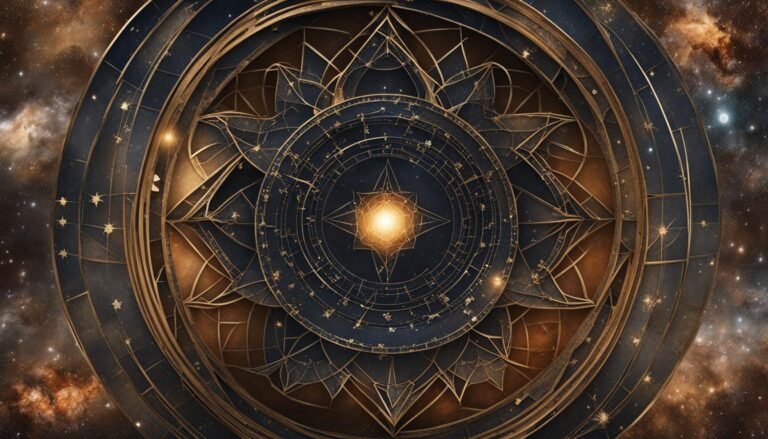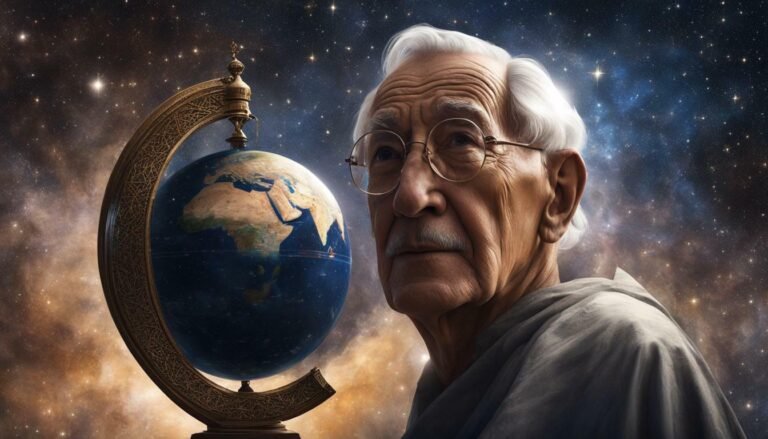Is Astrology Evil? Demystifying the Enigma in the Stars
Astrology is a topic that has been debated for centuries. Some view it as a harmless hobby, while others believe it to be a tool of the devil. As a journalist, I wanted to explore this topic and answer the question: Is astrology evil?
One perspective to consider is the relationship between astrology and religion. Many devoutly religious individuals view astrology as a form of witchcraft, and therefore, evil. However, others argue that astrology is simply a tool for self-reflection and personal growth, and thus, has no religious implications.
Another angle to consider is the scientific aspect of astrology. While it is true that astrology cannot be considered a precise science, it does have some basis in scientific principles. Astrology is based on the movements and positions of celestial bodies, and some researchers have even found correlations between astrological signs and personality traits.
In the following sections, we will delve deeper into these perspectives, debunk common myths surrounding astrology, and explore the controversies surrounding this enigmatic topic.
- Astrology is a debated topic with religious and scientific implications.
- Some view astrology as evil due to its alleged association with witchcraft.
- Astrology cannot be considered a precise science, but it does have some basis in scientific principles.
Debunking Astrology Myths: Separating Fact from Fiction
Many people believe in astrology, but just as many are skeptical. There are numerous myths surrounding astrology that contribute to this skepticism. Let’s take a look at some of the most common misconceptions and debunk them one by one.
Myth: Astrology has negative effects on people’s lives.
Some people believe that astrology has a negative impact on their lives, causing them to make poor decisions or leading them to feel hopeless. However, there is no evidence to support this claim. Astrology should be viewed as a tool for self-awareness and reflection, not a predictor of the future.
Myth: Astrology is not a science.
While astrology is not recognized as a precise science, it is based on principles of astronomy and mathematics. Astrologers use planetary positions and other celestial phenomena to make predictions about human behavior. However, it is important to note that astrology cannot be used to make accurate predictions about events or outcomes.
Myth: Astrology is only for the superstitious.
Many people assume that astrology is only for those who believe in superstitions or the supernatural. However, astrology can be a useful tool for self-reflection and personal growth for anyone, regardless of their beliefs. It’s important to approach astrology with an open mind and not dismiss it as simply a superstitious practice.
Myth: Astrology is easy to debunk.
While there are certainly skeptics who challenge the validity of astrology, it is not as simple as debunking a myth. Astrology is a complex practice that has been studied and debated for centuries. While there may be disagreements about its legitimacy, it remains a popular and influential practice for many people.
By dispelling these common myths, we can begin to see astrology in a clearer light. It is important to approach astrology with an open mind and not dismiss it based on misconceptions or stereotypes.
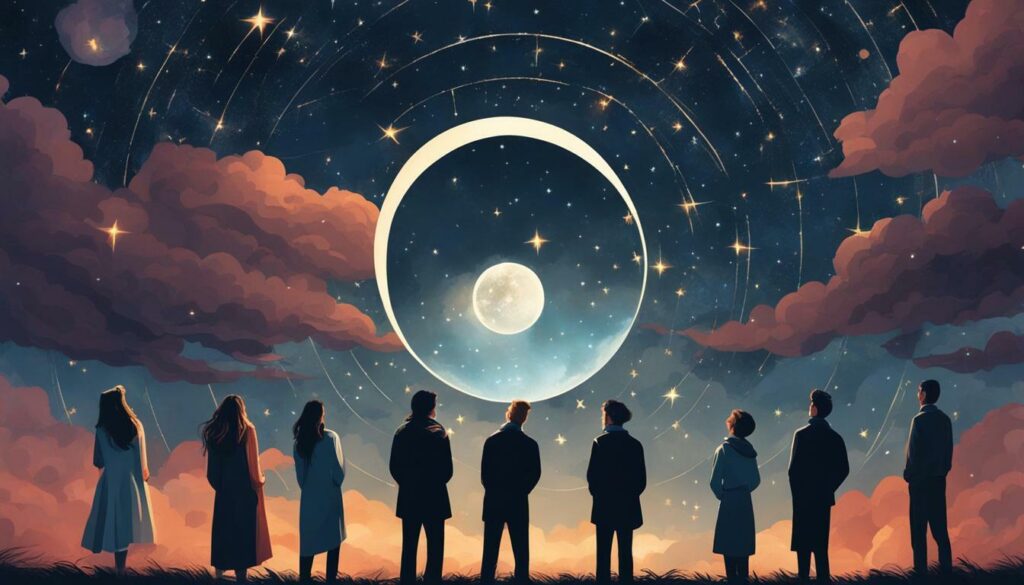
For many people, astrology is more than just a tool for predicting the future or understanding personality traits. It can be a deeply spiritual practice, intertwined with personal beliefs and values.
When exploring the relationship between astrology and spirituality, it’s important to distinguish between astrology as a valid form of self-reflection and astrology as superstition. While some may view astrology as a pseudoscience lacking empirical evidence, others find meaning in the symbolism and archetypes associated with the zodiac.
For me, astrology serves as a way to gain insight into my inner self and the world around me. By exploring my birth chart and the planetary placements at the time of my birth, I can better understand my strengths and weaknesses, and use this knowledge to grow and evolve as a person.
But it’s important to approach astrology with a critical eye, recognizing that it is not a substitute for personal agency or responsibility. Astrology can offer guidance and support, but it cannot make decisions for us. It’s up to each individual to use astrology as a tool for self-exploration, rather than relying on it as a crutch or excuse for certain behaviors or actions.
Some may view astrology as conflicting with their religious beliefs, viewing it as idolatry or divination. However, it’s important to remember that spirituality is a personal journey, and each individual’s beliefs and practices may differ. For some, astrology may complement their faith, providing additional insight and perspective. For others, it may not resonate at all.
Ultimately, the intersection of astrology and spirituality is a complex and multifaceted topic. It’s up to each individual to find their own path and approach to these practices, recognizing that there is no one “right” way. As long as we approach astrology with an open mind and a critical eye, we can find harmony between our beliefs and the cosmic forces that guide us.
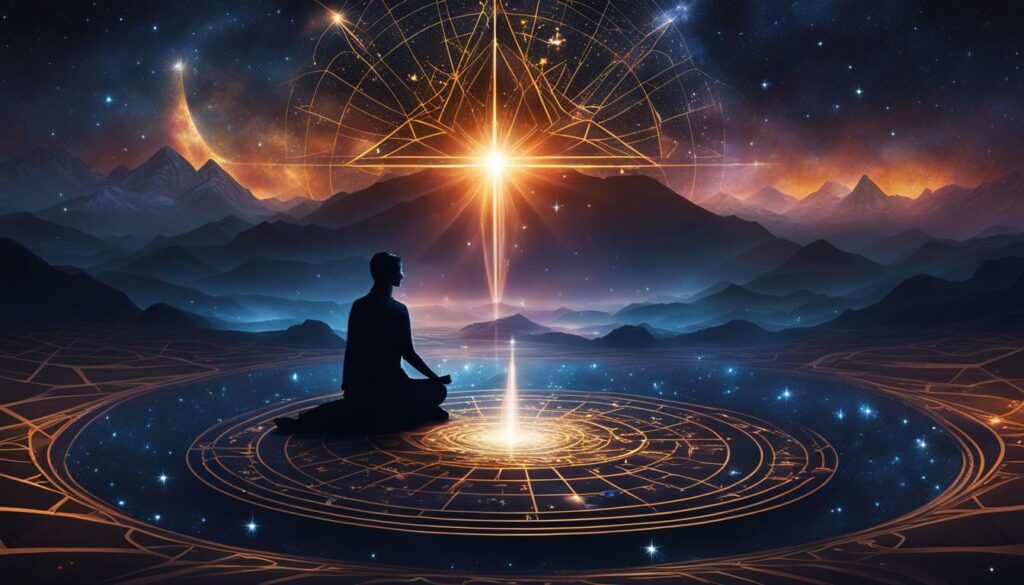
Astrology has long been a topic of controversy, with some dismissing it as pseudoscience while others embrace it as a valuable tool for self-discovery. The debate around astrology’s legitimacy and ethical implications is ongoing, and it can be challenging to navigate the gray areas surrounding this enigmatic practice.
One major point of contention is whether astrology is a reliable source of information about ourselves and the world around us. Skeptics argue that there is no scientific evidence to support astrology’s claims, and that any apparent correlations between astrological phenomena and human behavior are merely coincidental.
However, proponents of astrology point to its long history and widespread popularity as evidence of its validity. They argue that astrology can provide insights into individual strengths and weaknesses, as well as help us understand the bigger picture of our place in the universe.
Another controversial aspect of astrology is its potential to reinforce harmful stereotypes and encourage fatalistic thinking. Critics argue that astrology can contribute to a sense of helplessness and dependence on external forces, rather than empowering individuals to take control of their lives.
However, others see astrology as a means of understanding and accepting our natural strengths and limitations, and using this knowledge to make informed decisions and navigate life’s complexities.
In the end, the debate around astrology is ultimately a matter of perspective. While there may be no concrete evidence to support astrology’s claims, it can still hold personal meaning and value for those who choose to explore it. As with any belief system, it is up to individuals to decide for themselves whether astrology has a place in their lives.
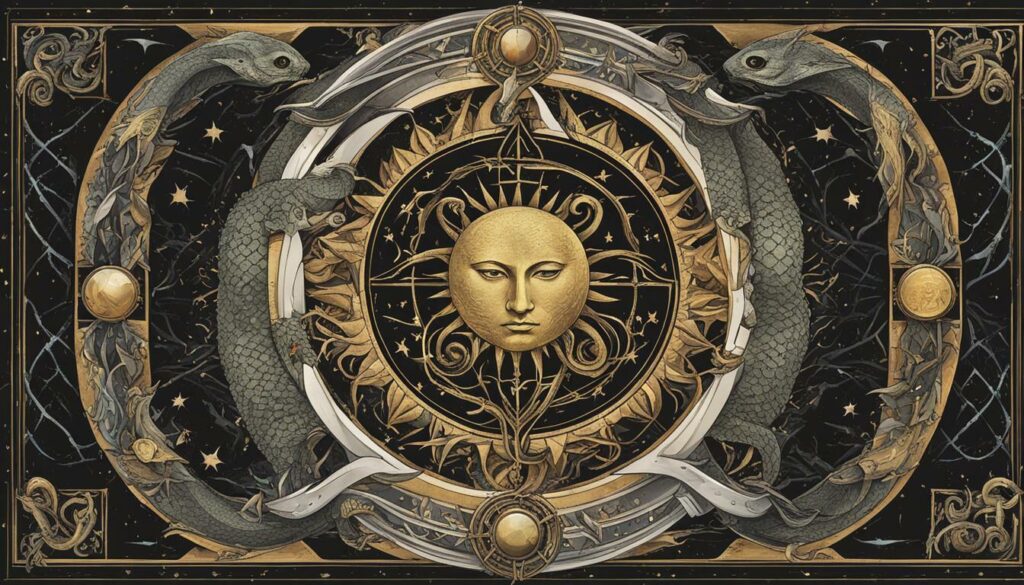
Throughout this article, we’ve explored the different aspects of astrology, from its relationship with religion to debunking common myths and controversies surrounding its use. While astrology may not be scientifically recognized, it can still hold personal meaning and value for individuals.
As with any belief system, astrology can provide a unique perspective on the world, allowing individuals to gain deeper insights into themselves and their relationships with others. However, it’s important to approach astrology with an open mind and a healthy dose of skepticism.
While some may dismiss astrology as mere superstition, others find comfort and meaning in its teachings. At its core, astrology offers a way to reflect on our experiences and gain a deeper understanding of ourselves and our place in the universe.
While astrology may not be a precise science, it can still hold value in our personal and spiritual lives. By approaching it with an open mind and an appreciation for its power of perspective, we can unlock its potential for personal growth and self-discovery.
So whether or not you believe in astrology as a science, its teachings can offer valuable insights into ourselves and the world around us. As we continue to explore the mysteries of the universe, let’s remember that the power of perspective can be just as transformative as any scientific discovery.
FAQ
Q: Is astrology evil?
A: Astrology is not inherently evil. It is a practice that has been around for thousands of years and is deeply rooted in various cultures and belief systems. Whether astrology is good or bad depends on how it is used and interpreted by individuals.
Q: What is the relationship between astrology and religion?
A: The relationship between astrology and religion is complex and varies across different belief systems. Some religions view astrology as compatible with their teachings, while others may consider it contradictory or even forbidden. It ultimately depends on the specific religious beliefs and interpretations.
Q: Is astrology considered a science?
A: Astrology is not recognized as a precise science by the scientific community. While astrology involves the study of celestial bodies and their supposed influence on human affairs, it lacks the empirical evidence and rigorous testing required for scientific validation.
Q: What are the negative effects often associated with astrology?
A: Negative effects associated with astrology are often subjective and depend on individual experiences. Some people may become overly reliant on astrology predictions, leading to a loss of personal agency or decision-making. Additionally, astrology can sometimes perpetuate stereotypes or reinforce biased beliefs.
Q: Is astrology a spiritual practice or superstition?
A: Astrology can be approached as both a spiritual practice and a form of superstition. For some individuals, astrology serves as a tool for self-reflection and personal growth, offering a framework for understanding themselves and the world around them. However, astrology can also be seen as a superstitious belief system, relying on unfounded assumptions and attributions.
Q: What are the controversies surrounding astrology?
A: Astrology is a subject of ongoing controversy. Critics argue that astrology lacks scientific validity and can perpetuate irrational beliefs. There are also debates about the ethics of charging for astrological services and the potential harm that can arise from relying too heavily on astrological predictions.
Q: Is astrology recognized as a precise science?
A: Astrology is not recognized as a precise science by the scientific community. It does not adhere to the rigorous methodologies and empirical testing required for scientific validation. However, astrology can still hold personal meaning and value for individuals, providing insights and guidance in their lives.

